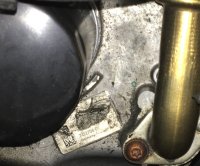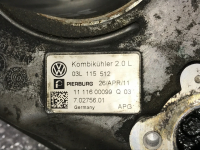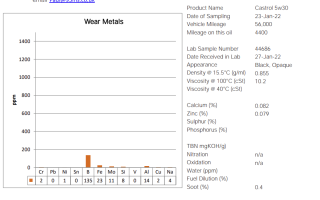I bought an Oil Tester with a bit of doubt as to it being anything other than a piece of useless kit.
Tested on Cali before and after oil change. Showed oil OK but about 50% contaminated before oil change and all good after change.
Tested on the petrol car again before and after services. Same result as above.
Tested on Historic Car and came up with failure of engine indication. Semi-panic as engine had been completely rebuilt around 1,000mls previously. Oil drained and sump removed. Thick layer of sludge in sump from running in process which I'd obviously gone down into with my suction probe.
tested drained oil and that was in good order.
Result was that for a fairly reasonable cost a check on oil condition can be carried out at any time.
Best method was to use a length of windscreen washer tube, take dipstick out and place the tube next to dipstick and put tape around the tube to show how far down to insert the tube into the dipstick hole so that it doesn't get to the bottom of the sump but into the oil.
Suck oil up the tube to get a sample. Takes forever using the dipstick to get enough oil for a sample.
Find many great new & used options and get the best deals for My MOT - Motor Engine Oil Tester - Reliable & Affordable Car Engine Oil Tester at the best online prices at eBay! Free delivery for many products.
www.ebay.co.uk



















